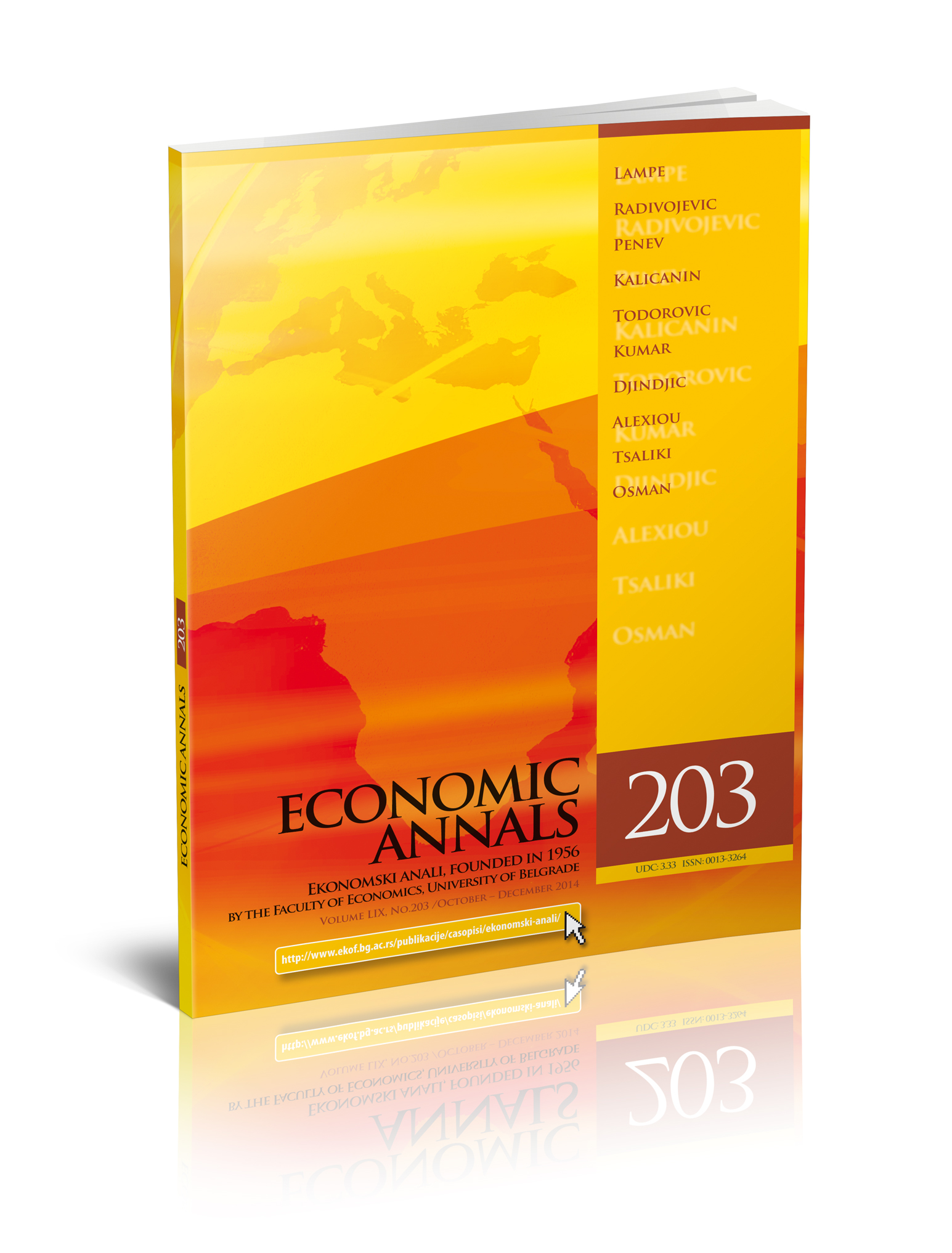THE REDISTRIBUTIVE EFFECTS OF PERSONAL TAXES AND SOCIAL BENEFITS IN THE REPUBLIC OF SERBIA
##plugins.themes.bootstrap3.article.main##
##plugins.themes.bootstrap3.article.sidebar##
Srdjan Djindjic
Abstract
In this paper we measure the influence of the instruments of Serbia’s fiscal system - personal taxes (personal income tax and social security contributions) and social benefits (means tested and nonmeans tested) - on income redistribution, using the latest data from the Household Budget Survey 2012. We analyse the redistributive effects of the fiscal system for the year 2013 and of the fiscal system that has been functioning since 1st January 2014. We find that the redistributive effect reduces income inequality by about 50% in both observed years. Social benefits create 98% of vertical redistribution (2013), whereas personal taxes initiate 2% (2013). State pensions, means-tested social benefits, and social security contributions are most important in reducing inequality in Serbia (2013). The partial fiscal reform (2014) has not changed the rank of the focused fiscal instruments.
##plugins.themes.bootstrap3.article.details##
Keywords
Redistributive effect, Income inequality, Fiscal instrument, Decomposition, Serbia.
JEL Classification
D31, D33, H22, H23, H24
Issue
Section
Articles
How to Cite
Djindjic, S. (2014). THE REDISTRIBUTIVE EFFECTS OF PERSONAL TAXES AND SOCIAL BENEFITS IN THE REPUBLIC OF SERBIA. Economic Annals, 59(203), 91-118. https://doi.org/10.2298/EKA1403091D
How to Cite
Djindjic, S. (2014). THE REDISTRIBUTIVE EFFECTS OF PERSONAL TAXES AND SOCIAL BENEFITS IN THE REPUBLIC OF SERBIA. Economic Annals, 59(203), 91-118. https://doi.org/10.2298/EKA1403091D

